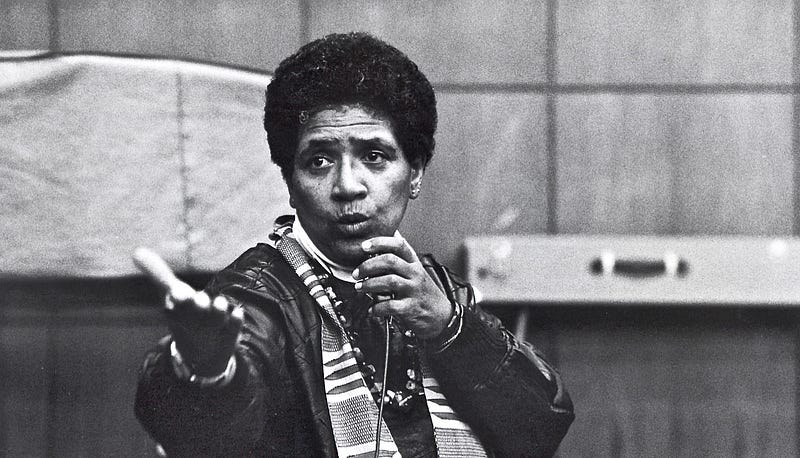Happy Black History Month! (originally published February 2020)
by S.E. Hackney
On Thursday, January 23rd, Dr. Safiya Noble spoke to an overflowing room of students, faculty, and community members about her best-selling book Algorithms of Oppression. The thesis of the book, and of Dr. Noble’s talk, is that not only racism is actually built in to the search algorithms which we use to navigate the internet, but that the big players of the internet (Google specifically) actually profit off of that racism by tokenizing the identities of people of color. It does this by associating identity phrases such as “black girls” or “phillipina” with the sites with the most streamlined (aka profitable) SEO, which is often pornography. This is a system of classification explicitly based on the centering of the white experience and and othering of Black people and other people of color.
However, as Dr. Noble spoke about in her talk, tweaking a search result or two to avoid offense doesn’t actually solve a systemic problem — one where white voices are treated as the norm, and others eventually become reduced to SEO tags to be bought and sold. This idea played out recently in Barnes & Noble’s miss guided Black History Month project, where public domain books where the race of the protagonist is not specified (determined by algorithm) have new cover art created for them, depicting the characters as People of Color. Rod Faulkner, who first brought this issue to widespread attention describes it as “literary blackface,” and points out, “Slapping illustrations of Black versions of white main characters on the covers of these novels do not change any of these facts — and in no way, shape, or form make the books diverse,” and represents a HUGE missed opportunity to highlight the work of actual Black authors writing about authentic Black experiences. Barnes & Noble has since cancelled this plan, but serves as an example of how surface-level, reactionary representation can do more harm than good.
In thinking about how the structures of information retrieval are built (in libraries and elsewhere), Hope Olson writes about the foundation of contemporary classification as being about “sameness and difference,” which in and of itself is a culturally dependent way to depict one item’s relationship to another. It’s much easier if a certain type of sameness is assumed — whiteness, white supremacy. The work of Black leaders in Library and Information Science, such as Dr. Noble, pushes back at a single, white, sameness, whether through explicitly calling out white supremacy in the algorithms, or by advocating for more diverse books on the shelves of public libraries — or places on those shelves that do not use the language of the oppressor.

I want to use this space to fill at least some small corner of the Information Ecosystems seminar with the work and voices of Black people. Of course, people of many other ethnicities and races have contributed and continue to contribute to the field, but it’s Black History Month, and I believe the Sawyer seminar (and academia as a whole) owes a great debt to Black librarians and information scientists. And, I believe, that that debt is being ignored by the conventional conversations we have about algorithms, information retrieval, and the importance of culturally-literate information infrastructure.
Safiya Noble
Audre Lorde — don’t forget she was also a librarian!
Virgina Proctor Powell — First black woman to attend library school at the University of Pittsburgh
Bekezela Mguni — local artist and organizer, creating permanent and pop-up collections of Black-focused work.
African American History Culture and Digital Humanities (AADHum) — Grant, conference, and ongoing work specifically on African American history in the digital humanities
